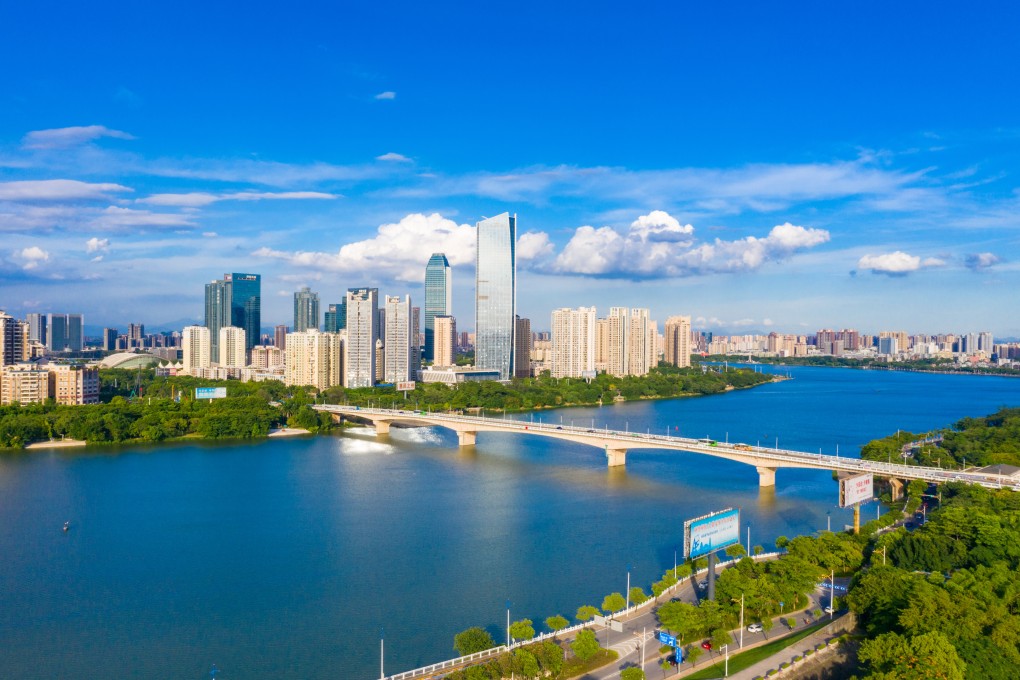Advertisement
Chinese autonomous driving firm Desay allows Greater Bay Area city Huizhou to steer EV sector
- Desay has been working with BlackBerry and Nvidia to deliver internal computing hubs that can power autonomous driving
- The Shenzhen-listed firm is behind Xpeng’s P7 and is also helping Li Auto develop a Level 4 autonomous driving system
Reading Time:2 minutes
Why you can trust SCMP

Desay SV Automotive, aHuizhou-based electronics components maker, is developing new technologies that could help Chinese electric vehicle (EV) makers put passengers into driverless cars.
The technology developer behind the P7, Guangzhou-based EV maker Xpeng’s all-electric mid-sized sedan, Desay has been working with Canada-based security software provider BlackBerry and US-based chip maker Nvidia to deliver internal computing hubs that can power autonomous driving.
Beijing wants one in every five new cars hitting China’s roads to be either purely electric, hybrid or fuel-cell powered by 2025, which could amount to 4 million such vehicles. And Desay, which is the country’s leading supplier of automotive electronics, is helping Huizhou – the second-largest among the nine mainland Chinese cities covered by Beijing’s Greater Bay Area development zone – run with the big boys as China’s EV sector gathers pace.
Advertisement
Shenzhen-listed Desay occupies a 100,000 square metre industrial estate in Huizhou’s hi-tech industrial development zone with Desay Battery, a sister company that mainly produces lithium-ion batteries and supplies to Apple.
Moreover, Huizhou borders Shenzhen’s Pingshan district, which is home to BYD, the EV and rechargeable batteries giant. This concentration of big Chinese technology companies has boosted the role Greater Bay Area is playing in consolidating China’s lead in EVs globally.
“China is likely to stay as the largest automotive market, as well as the largest EV market, for years to come,” said Grant Courville, vice-president of products and strategy at BlackBerry QNX, an operating system widely used in cars. China was one of the most important markets for BlackBerry’s automotive business, he added.
Advertisement
Select Voice
Select Speed
1.00x
